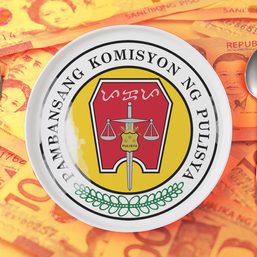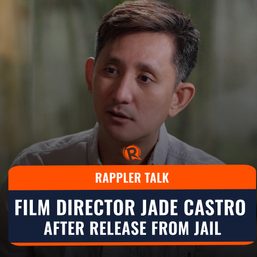SUMMARY
This is AI generated summarization, which may have errors. For context, always refer to the full article.
![[Vantage Point] POGOs, the quintessential milking cow](https://www.rappler.com/tachyon/2024/03/pogo-quintessential-milking-cow-march-23-2024.jpg)
Questions over the legitimacy of the raid conducted by elements of the Philippine National Police (PNP) and the Presidential Anti-Organized Crime Commission (PAOCC) on the headquarters of Zun Yuan Technology Incorporated at A1 Commercial Bldg. in Bamban, Tarlac, on March 13 are now being raised, and for a slew of reasons.
There is no point denying it. Zun Yuan Technology is engaged in online gambling. The company and others like it were previously known as POGOs (Philippine offshore gaming operators), an acronym that gained an unsavory reputation, which is why the Philippine Amusement and Gaming Corporation (Pagcor) has adopted the innocuous-sounding internet gaming licensees (IGLs) as replacement.
It was then-president Rodrigo Duterte who turned the country into an internet gambling mecca in defiance of his overlord, President Xi Jinping, who wanted to stop the flow of capital from mainland China to the Philippines and other countries in Southeast Asia.
Despite backlash against the operations of offshore gambling firms in the Philippines, the government has given POGOs the legal legs to freely operate in several areas in the county in exchange for outright revenues through taxation. Because of their successful money-making operations, these online gambling operators have become the favorite whipping boy of corrupt law enforcers, with many POGO personnel often the target of extortion. Stricter regulation, increased taxation, and even outright bans on POGO activities due to their perceived negative impact on society have all been swept under the rug.
The rapid expansion of POGOs in the country comes at a price. It has put a strain on local infrastructure, including transportation, utilities, and housing. The adverse effects include displacement of local residents due to rising property prices, increased crime rates in areas with high concentrations of POGO establishments, and the negative impact on local businesses.
But since POGOs have been given the legal cover to exist, those against these offshore gambling operators couldn’t do anything but suffer the consequences. It is against this backdrop that corrupt law enforcers are able to pick on POGO operations for instant cash.
Operational lapses committed during the Tarlac raid of Zun Yuan – intentional or otherwise – have opened the law enforcement agents involved in the raid to charges of attempting to shake down the company, which is admittedly a money-making machine.
Consider the facts.
Until the operation was well underway, the Bamban Police was kept in the dark, as was the barangay chairman in the area. Neither was the raid coordinated with the regional PNP command in San Fernando, Pampanga, which has jurisdiction over all police districts in Tarlac and all the provinces in Central Luzon.
Most troubling of all, the company said, the CCTV system was disabled and the footage of the raid destroyed.
The raid was carried out on the strength of two search warrants, issued by the executive judge of the Bulacan Regional Trial Court, for human trafficking and illegal detention – accusations the company claims were ridiculous and baseless.
Company spokesman Jonathan Mendoza said the PNP operation came as a complete surprise, adding that Zun Yuan Technology has always maintained an open communication line with the government, especially law enforcement agencies, at the local, provincial, and national levels.
“In fact,” Mendoza pointed out, “the company had even hosted the PNP, particularly the Criminal Investigation and Detection Group and the PAOCC, on March 5, or a little more than a week before the raid.”
For several hours during the visit, Mendoza said, the agents got to interact with company officials and watched employees demonstrate online betting.
“If someone was being trafficked and illegally detained, the operatives would have discovered the crimes,” he noted. “They had been given a run of the place.”
According to Mendoza, Zun Yuan had already answered the allegation made by two company employees, a Vietnamese and a Malaysian, that they had escaped from detention in the facility. “The employees did not escape. They were kicked out of the premises and their services terminated when they refused to settle their debts from establishments operating in and around the compound and from their fellow employees.”
Following the raid, company officials were denied entry into the building. They were prevented from conducting an inventory of computers and other high-value equipment, including a vault in which the company kept important documents and cash amounting to tens of millions of pesos.
The PNP and PAOCC made a big deal about the firearms confiscated during the raid, although no assault rifles or high-caliber guns were reported in the mix. All were shotguns that belonged to the security agency employed by Zun Yuan, and not owned by the company itself.
Mendoza said Zun Yuan Technology’s operation is aboveboard. It does business under a provisional internet gaming license issued by the Pagcor in October 2023.
He said the crimes that the inter-agency task force was supposed to stop were nonexistent. All Filipino citizens and foreign nationals, mostly Chinese and Vietnamese, employed by the company were free to move around. Until the agents swooped down on them, these employees came and went as they pleased.
Mendoza maintained that there was no legal justification for the raid. He said what the raid accomplished was to deprive people of their livelihood. Of those who lost their jobs as a result of the raid were 700 Filipinos working as administrative staff, customer service representatives, security guards, and housekeepers, who were given salaries ranging from P20,000 to P35,000 a month.
Also adversely affected were owners of small restaurants, fruit stands, laundromats, and sari-sari stores in the immediate vicinity. Most of these establishments have since closed down for lack of customers.
The government stands to lose a substantial amount of revenue as well, Mendoza claimed. Zun Yuan Technology’s finance department, he said was poised to remit to the government P15 million, representing corporate taxes from October 2023, when it was granted a provisional license to operate, to April 2024, when payment becomes due. Now, the amount would have to be adjusted downward.
He added the company was also committed to donate one fire truck to the Bamban municipal government and two school buses for Aeta children once it obtained a regular license. A monthly donation of rice to poor communities was also in the works.
And this is the crux of the problem. POGOs have the legal leg to stand on, given the various licenses to operate that they easily obtain from the government. Never mind one’s moral viewpoint about gambling – the fact remains that an IGL or POGO brings in money to the national coffers.
China is like a giant sponge that soaks up capital from the Philippines by persuading corrupt government officials to undertake vanity projects, which it finances with loans of high-interest rates. On the other hand, online gaming directs the flow in the opposite direction, from China to the Philippines.
Online gaming targets wealthy Chinese in the mainland, draining the country’s resources, which is why Xi Jinping wants internet gambling shut down. – Rappler.com
1 comment
How does this make you feel?
![[Vantage Point] China’s silent invasion of the Philippines](https://www.rappler.com/tachyon/2024/07/TL-china-silent-invasion-july-16-2024.jpg?resize=257%2C257&crop=318px%2C0px%2C720px%2C720px)







![[The Slingshot] Lito Patay’s 4 hours and 38 minutes of infamy](https://www.rappler.com/tachyon/2024/07/Lito-Patay-4-hours-infamy-July-19-2024.jpg?resize=257%2C257&crop=233px%2C0px%2C720px%2C720px)


![[The Slingshot] Alden Delvo has retired](https://www.rappler.com/tachyon/2024/05/slingshot-alden-delvo-05042024.jpg?resize=257%2C257&crop=243px%2C0px%2C720px%2C720px)

![[WATCH] Bamban POGO scandal: There’s a bigger fish than Alice Guo](https://www.rappler.com/tachyon/2024/07/inside-track-tcard-bamban-pogo.jpg?resize=257%2C257&crop=435px%2C0px%2C1080px%2C1080px)



First: “It was then-president Rodrigo Duterte who turned the country into an internet gambling mecca in defiance of his overlord, President Xi Jinping.” So, former President Digong is not 100% subservient to President Xi Jinping when monetary consideration is given greater priority. Or part of the POGO income under FPRRD was returned to China, not through its government but in the pocket of President Xi Jinping. Secondly, the lack of coordination between the Philippine National Police (PNP)-CIDG, the Presidential Anti-Organized Crime Commission (PAOCC), and the Bamban PNP and Regional PNP Command is reminiscent of the Mamasapano incident. This points to a lack of trust among these groups, just like in the incident. This resulted in a group or number of groups that would like to get the upper hand or resolve an inequitable distribution of amassed wealth coveted by corruption.